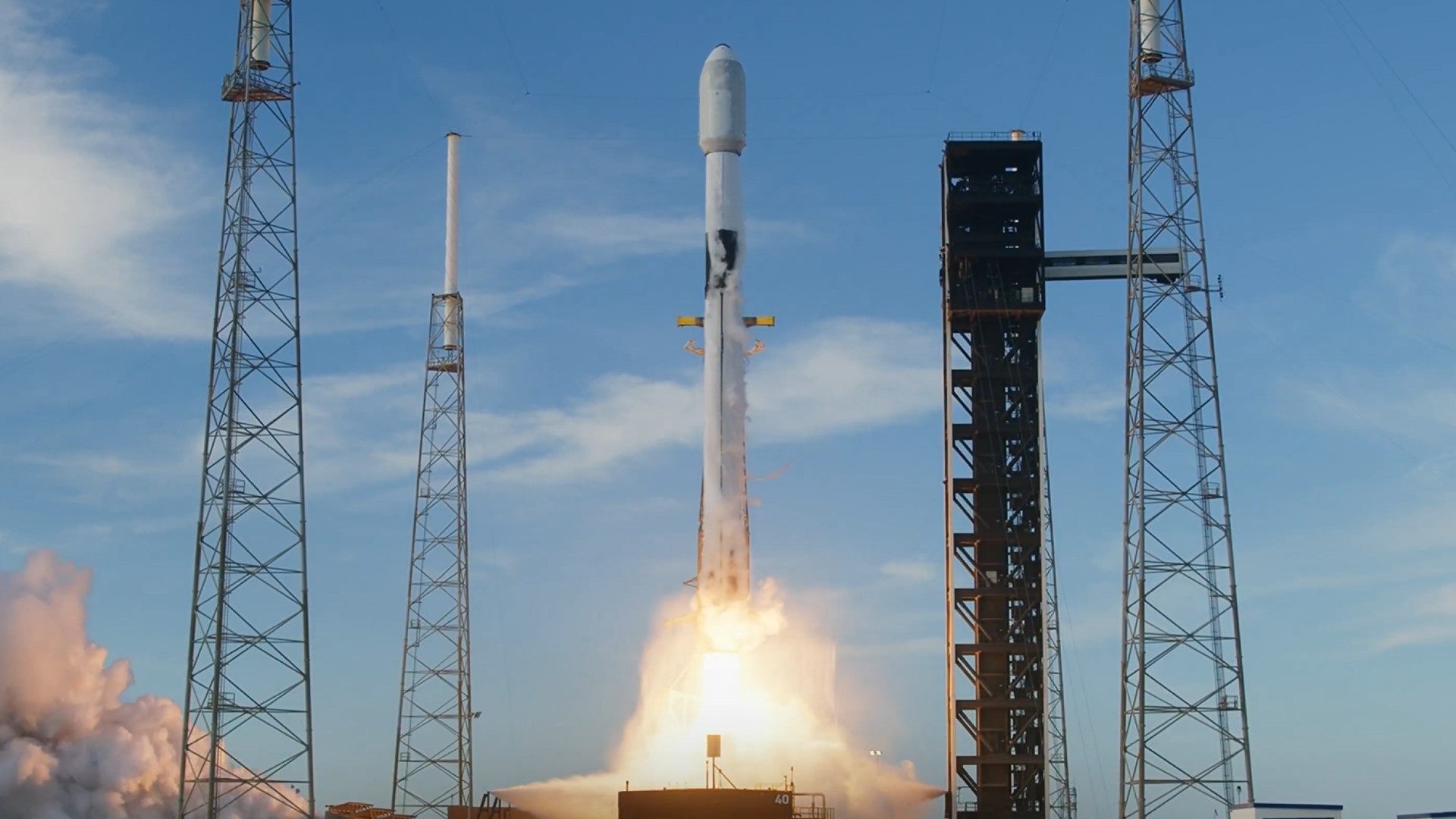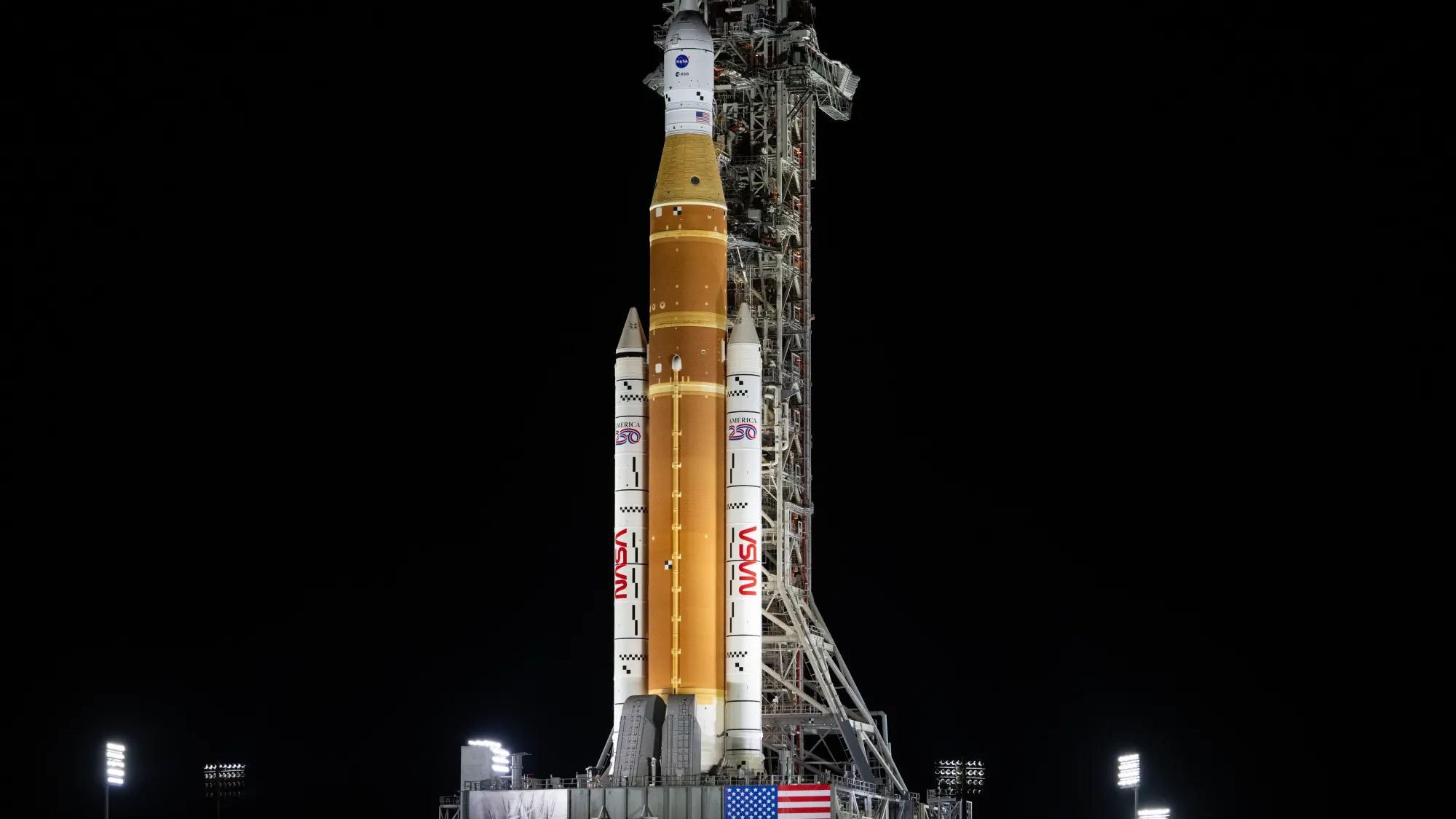Falcon 9 rocket launches Amazon Kuiper satellites on SpaceX's 100th mission of the year (video)
SpaceX launched its 100th mission of the year on Monday (Aug. 11).
A Falcon 9 rocket carrying 24 of Amazon's Project Kuiper internet spacecraft lifted off from Cape Canaveral Space Force Station in Florida on Monday at 8:35 a.m. ET (1235 GMT).
Today's launch was the 97th Falcon 9 liftoff of the year already and SpaceX's 100th mission of 2025 overall. The other three were suborbital test flights of Starship, the huge, reusable vehicle that the company is developing to help humanity settle Mars.

The first two attempts at this launch on Saturday (Aug. 9) and Sunday (Aug. 10) were scrubbed due to poor weather conditions, first at the launch site and then for recovery, respectively.
SpaceX also operates a third rocket, the Falcon Heavy, which hasn't flown since October 2024, when it sent NASA's Europa Clipper probe toward the Jupiter system. The rocket that launched this mission, tail number B1091, was built as a booster for Falcon Heavy, a configuration that uses three Falcon 9 boosters together for larger payloads.
If SpaceX maintains its current pace, it will launch about 163 times this year. That would break the company's single-year record of 138, which it set in 2024. (Last year's breakdown: 132 Falcon 9 liftoffs, two Falcon Heavy launches and four Starship test flights.)
More than 70% of this year's Falcon 9 launches have been dedicated to building out Starlink, SpaceX's broadband megaconstellation in low Earth orbit (LEO). Starlink currently consists of more than 8,100 operational satellites, and it's growing all the time.
Breaking space news, the latest updates on rocket launches, skywatching events and more!
Project Kuiper, Amazon's version of Starlink, is still in the early buildout stage. Today's launch was just the fourth Kuiper liftoff to date and will bring the number of satellites in the new constellation to 102.
Kuiper will eventually consist of over 3,200 spacecraft, which will be lofted on more than 80 launches over the next few years. A variety of rockets will do this work; in addition to the Falcon 9, Amazon has enlisted Arianespace's Ariane 6, Blue Origin's New Glenn and United Launch Alliance's Atlas V and Vulcan Centaur.
The Falcon 9's first stage returned to Earth about 8.5 minutes after liftoff, touching down in the Atlantic Ocean on the SpaceX drone ship "A Shortfall of Gravitas." It was the 120th booster landing on the ship.
It was the debut flight for this particular booster, according to a SpaceX mission description. That's quite rare, as the company is known for its rocket reuse; its most-flown Falcon 9 has 29 flights under its belt.
The Falcon 9's upper stage, meanwhile, will continue carrying the 24 Project Kuiper satellites to LEO. They'll be deployed over a 7.5-minute span beginning about 56 minutes after liftoff, if all goes to plan.

Michael Wall is a Senior Space Writer with Space.com and joined the team in 2010. He primarily covers exoplanets, spaceflight and military space, but has been known to dabble in the space art beat. His book about the search for alien life, "Out There," was published on Nov. 13, 2018. Before becoming a science writer, Michael worked as a herpetologist and wildlife biologist. He has a Ph.D. in evolutionary biology from the University of Sydney, Australia, a bachelor's degree from the University of Arizona, and a graduate certificate in science writing from the University of California, Santa Cruz. To find out what his latest project is, you can follow Michael on Twitter.
You must confirm your public display name before commenting
Please logout and then login again, you will then be prompted to enter your display name.
